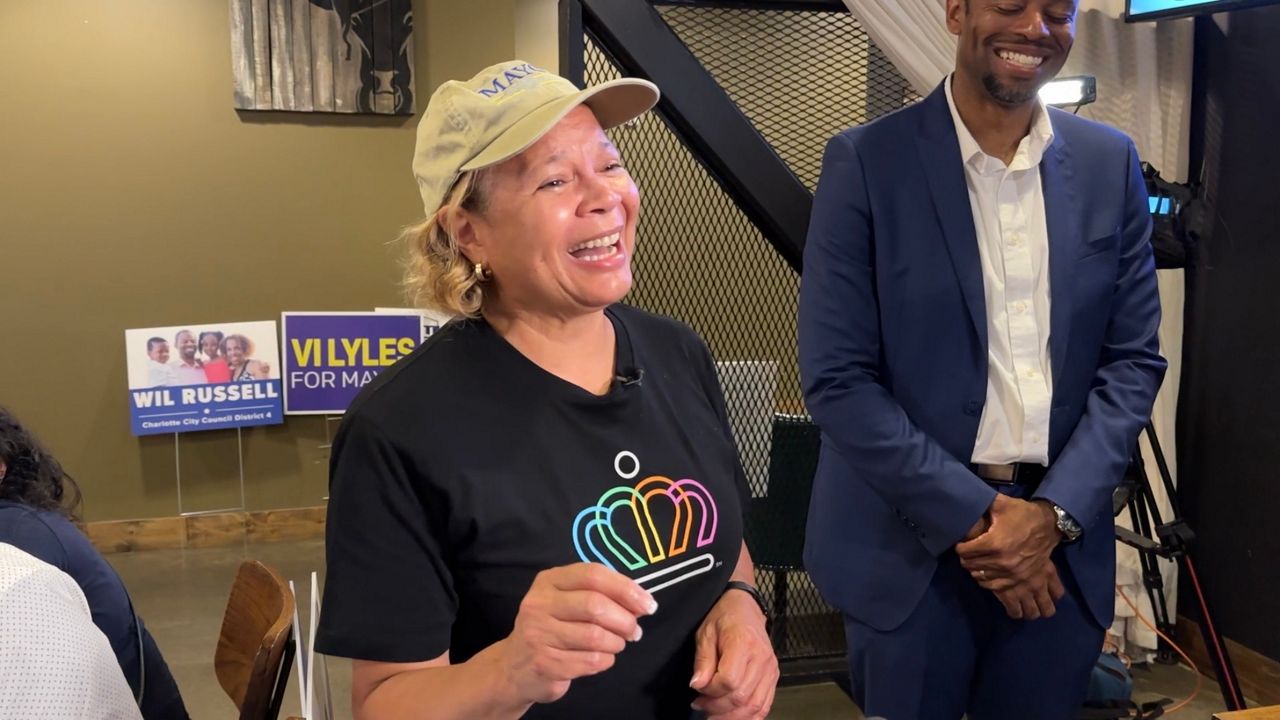Charlotte’s three-term mayor secured the Democratic nomination Tuesday to run for another two years leading North Carolina’s largest city.
Mayor Vi Lyles won the primary with 85% of the vote, defeating challenger Lucille Puckett.
Lyles will face Republican Misun Kim and Libertarian Rob Yates in the General Election. The Queen City is heavily Democratic, giving Lyles a strong position going into the Nov. 7 election.
Before the polls closed Tuesday, Lyles was campaigning at Hornets Nest Elementary School precinct on Beatties Ford Road in Charlotte.
When asked about the most pressing issues facing the city, she said, “What I call quality of life issues.”
“The quality of life, whether it’s people who are not housed. Quality of life, whether or not they have the ability to get to work on time. The quality of life to be safe in their communities, in their homes. These are quality of life issues that we’ve taken for granted in large part,” the mayor said.
The last municipal elections in Charlotte should have been held in 2021, but delays with census numbers for redistricting delayed the vote until 2022.
Every seat on the Charlotte City Council is up for election this year. Four city council districts and the race for four at-large seats had Democratic primaries Tuesday.
Related: Incumbents come out on top in Charlotte City Council primary elections
In two districts, 1 and 7, the incumbents are running unopposed. Three races, for Districts 2, 4 and 5, have only Democrats running and the winner will be decided in the primary.
There’s a crowded field for the four at-large seats on the council, with seven Democrats running for the spots. The winners of the primary will go up against Libertarian Steven DiFiore in the General Election.
There was low turnout for Tuesday’s election, with less than 5% of eligible voters casting ballots in the primary.
There were more than 482,000 voters eligible to vote in Tuesday's primary. About 23,670 people cast ballots in the election, according to the State Board of Elections.
"I think that people understand that voting is important, it's their voice," Lyles said. "I also think, sometimes, that by having an election at the same time last year, to this year, we haven't given the voters enough education to make sure that our turnout is what it can be."
Tuesday’s election in Charlotte, and another primary in Sanford, were the first elections under North Carolina’s new voter ID law.
County election officials said voters did not have many issues with the new voter ID rules.
“The easiest thing is that, if you have a driver’s license or state ID from DMV, you’re already good to go. Just bring your driver’s license or your North Carolina state ID. Show that, and you will have no issues,” Kristin Mavromatis, with the Mecklenburg County Board of Elections, said during early voting.
Voters can also use other photo ID cards, including passports, military IDs and approved student or employee IDs. The State Board of Elections has a full list of approved IDs.
Most North Carolina cities, towns and counties will have primary elections Oct. 10 ahead of the Nov. 7 General Election.
Spectrum News 1 reporter Jacob Reynolds contributed to this article.



